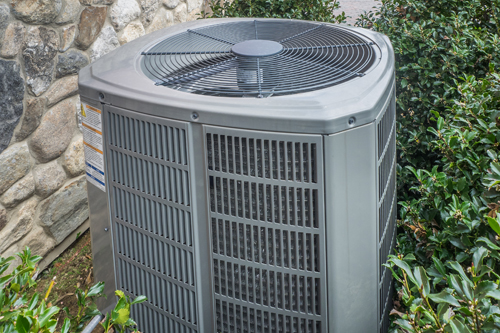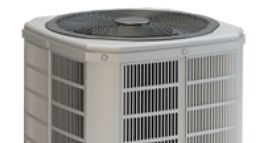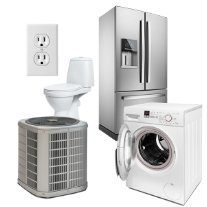HVAC systems really are your home’s best defense against the cold of winter and the heat of summer. Here are some general maintenance and upkeep tips to keep it running during hot and cold weather.
Change the Filter Regularly
Just like the oil in your car, the filter keeps the entire system clean and efficient. An overloaded filter forces your system to work harder – requiring more energy to push the air through. Not only will this increase your electric bill, but it reduces the lifespan of your unit. Cleaning the filter is a simple process that should be done at least once every three months.
New filters are crucial during high usage periods. Hot summers and cold winters put extra strain on your HVAC, so check them regularly during those months. When you’re using your HVAC every day, pet hair, dust and other allergens like pollen build up and quickly reduce the air quality in your home.
Change Your Habits Indoors
Extreme weather in the winter and summer months puts significant strain on your HVAC system.
During warm summer months, opening your windows at night and turning on fans quickly lowers the temperature in your home. Turning off the A/C at night lets your unit recover from overworking during the day.
Putting on a sweatshirt and turning down the heat in the winter, even just a couple of degrees, will lower your electricity bill and keep your HVAC running efficiently longer.
Identify External Changes to your HVAC System
Before major problems occur, they often show visual warning signs on the actual unit. Going outside and looking over your hardware can alert you before serious problems arise. Be on the lookout for rust, dirty condenser or evaporator coils, water leaks and frozen coils. Identifying these warning signs and fixing them early on can prevent bigger problems and save you thousands in repair bills.
One of the best ways to ensure that your HVAC system is operating at full capacity is to have a qualified HVAC contractor tune up the system twice a year. These tune-ups usually cost less than $100, but will stop any minor problems before they turn into unmitigated disasters.
Keep the Outdoor Unit Free of Debris
Grass clippings, dust, and even animal nests can cause your outdoor A/C unit to run ineffectively. The harder the system has to work, the more likely it is to break down. And A/C repairs or replacements can be really expensive!
Every so often, simply spray your outdoor unit with a garden hose to remove debris and dirt. Check both inside and outside of the unit for any nesting animals. If you see anything, like an active bird or wasp nest or even signs of vermin, call a professional to remove it. Avoid the temptation to do it yourself.

Let 2-10 Help
With proper maintenance, your HVAC system could last many years. However, sometimes things simply break down, despite proper maintenance. In those cases, a 2-10 Home Buyers Warranty (2-10) Home Service Plan could help you save money addressing breakdowns.
If you’re looking to sell your home soon, or if you are in the process of purchasing a home, ask you agent about industry-leading HVAC coverage from 2-10. It could help protect you against the unexpected costs of HVAC breakdowns when you need it most.









